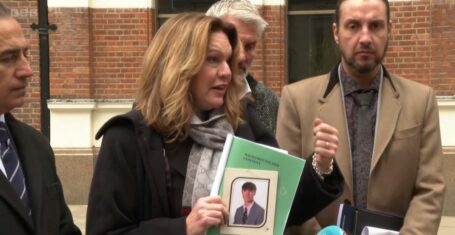
‘That’s so gay’: Here are seven homophobic micro-aggressions we need to retire
If I hear any of these again, I may scream
CW: mentions of homophobia and physical violence
If someone asked you to picture homophobic behaviour, certain ideas might spring to mind. You would most likely envision overtly homophobic language or even violence being carried out against someone due to their sexual orientation or identity.
While these behaviours are absolutely indicative of homophobia, we need to stop acting like they’re the only hallmarks of this oppressive system. Homophobia comes in all shapes and sizes. Sometimes it sticks out like a sore thumb but sometimes it’s covert, implied and sometimes people who are being homophobic may not even realise it themselves. In these subliminal instances, this behaviour is micro-aggressive.
A microaggression is a commonplace, everyday phrase or sentiment that expresses a regressive mindset. In the context of homophobia, these sentiments and behaviours can fetishise, stereotype and devalue gay people. And they’re also seriously annoying. Here are just some of the many homophobic micro-aggressions we, as a society, should finally put to bed:

‘That’s so gay’
Among the butterfly-shaped crop tops and low-rise jeans, another symbol of the noughties endures, the expression: ‘that’s so gay’.
Ok, granted, I don’t hear this one as much as I used to. But every now and then, in a coffeeshop or on the tram, I hear it and I instinctually recoil. It takes me back to my school days when the other kids threw the phrase around like a ball on a basketball court. Whilst most people probably don’t mean it in a malicious way, it certainly translates that way. If something is bad, why do we have to use the word “gay” to describe it?

‘You’re gay? That’s such a waste’
This is usually uttered when you tell someone you’re gay and they insinuate that because you’re attractive, women (or in the case of lesbians, men) will sadly miss out.
In this sense, it’s usually delivered like a compliment and to be fair, I usually give people the benefit of the doubt when they use it. This is because I don’t think people truly understand the rhetorical weight behind it. This phrase stems from the line of thinking that men were born to satiate the desires of women and vice versa. That’s incredibly heteronormative. Don’t gay people deserve to have attractive partners too?
‘I want a gay best friend’
Whilst not mean-spirited, this desire is fetishistic. 2000s romcoms are filled with stereotypically camp, sassy gay companions have led to a number of girls and women wanting one of their own. But gay people, gay men in this context, aren’t accessories and we have our own lives. It’s never fun being reduced to a social archetype. If I’ve just met you and you come out with this phrase, chances are we won’t become friends.

Men salivating over queer women
I have queer, female friends who have experienced intense sexualisation from straight men. Akin to the “gay best friend” sentiment, this behaviour is fetishistic, but more aggressively so. Queer women don’t exist to satiate the sexual desires of men. That’s kind of the whole point of them, especially lesbians, being attracted to women. Please don’t treat them like pieces of meat and instead, recognise them for the versatile, valued people that they are.
In some cases, this micro-aggressive action even escalates. In 2019, two queer women were beaten up by a group of guys on a London bus because they wouldn’t kiss one another.

Straight men thinking gay men automatically desire them
I’ve told straight guys on nights out before that I’m gay and their eyes have glazed over with fear; it’s as if they’re a zebra in the Serengeti and I’m a ravenous lion. This idea belongs to the line of rhetoric that gay men are inherently predatory and that we maniacally scuttle towards the first guy we see.
Yes, the gay community has its fair share of creeps. But what community doesn’t? Besides, I’ve been in nightclubs and spied lots of non-consensual behaviour occurring between straight people and it’s usually administered by the guys.

Some people could really benefit from reading some allyship books
‘Who’s the man and who’s the woman in the relationship?’
This question is essentially code for: “Which one’s doing the penetrating?”. This heteronormative idea drives me up the wall. Not all sex is penetrative for a start. I mean, with this logic, two women can never have sex. Besides, a lot of gay guys don’t just give or receive during sex, they do both.
Moreover, penetration is not intrinsically a ‘masculine’ act. We most likely have the ancient Greeks and Romans to thank for the endurance of that idea. Bear in mind one Roman emperor boiled his wife to death in a bath, while another would hook up with his own mother. So, you know, the Classical World wasn’t always churning out good behaviours and sentiments that we should apply in the modern world.

Just because ideas and values can be traced back to antiquity doesn’t mean they’re right
‘How do you know you’re gay if you’ve never acted upon it?’
Honestly, I’ve never understood why some people act like before you can say you’re gay, you have to go on some Lara-Croft-style trek through the same sex. I don’t need to obtain some certification of gayness to prove that I’m radiating with it. You wouldn’t go up to a child and say, “how do you know you’re straight?”. In fact, it’s pretty much assumed that children are straight. I remember being a toddler and adults asking if the girl I played with on the nursery playground was my “girlfriend.”
For some people, ample experimentation is necessary for them to understand their sexuality. But for some of us, we understand ourselves quite early on in life. Please don’t dismiss the identities we present to you. It’s heteronormative and regressive.
If you or someone you know has been affected by this story you can contact Switchboard, the LGBTQ+ helpline, on 0300 330 0630 or visit their website. You can also find help through young people’s charity The Mix, and Galop, the LGBTQ+ anti-violence charity.
Related articles recommended by this author:
• Propaganda’s gone: Nottingham needs more LGBTQ+ safe spaces
• 16 things you’ll only understand if you’re an LGBTQ+ Notts student
• Listen up Notts students: Here are six tips to become a better LGBTQ+ ally
Featured image courtesy of Unsplash.









































